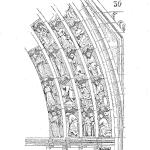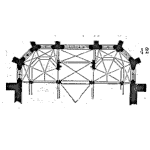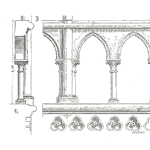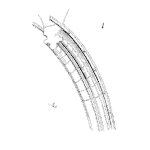
Upon my son’s return from studying abroad for a semester, I asked him what he learned. He said there are a lot of smart people in the world.
I concur. [Read more…]
Your Reliability Engineering Professional Development Site
Short essays and thoughts (musings) on reliability and maintenance engineering topics.
Let me know your reaction and thought, plus any questions.
ISSN 2329-0080
by Fred Schenkelberg Leave a Comment

Upon my son’s return from studying abroad for a semester, I asked him what he learned. He said there are a lot of smart people in the world.
I concur. [Read more…]
by Fred Schenkelberg Leave a Comment

During the design phase, we make decisions that create the eventual reliability performance of a product.
It is the decisions we make that matter.
Also during the design phase, we explore numerous questions. [Read more…]
by Fred Schenkelberg Leave a Comment
In deciding what industry you want to work as a reliability engineer, it is always good to have an understanding of what functional responsibilities you are expected to execute as a part of the job function.
You should always carefully review the job description then compare your knowledge acquired through training and on-the-job experience and ask yourself if you are capable of performing functions required without additional training.
Furthermore, we need to consider our technical limitations and at the same time be aware that the job description provided may not exclusive represents all the tasks you are expected to perform. [Read more…]
by Fred Schenkelberg 2 Comments
It’s been almost a year since launching Accendo Reliability. It’s been fun, exciting, and weekly.
Love it and really enjoy helping you answer questions, get stuff done, and master reliability engineering.
Since my wife and I just bought a house (out playing Pokemon Go when we stopped for an open house – and a week later our offer was accepted). Now we’re preparing to move ourselves to our new home.
There is a lot involved. [Read more…]
by Fred Schenkelberg Leave a Comment

Not much. You need just enough field failure data to identify the root cause and determine if and how to resolve the problem.
Field data will accumulate even if your program works diligently to prevent failures.
The actions taken before the reported failure will frame when you need to take action.
Gathering failure data and evaluating the trigger points for action is a reactive approach. This approach means you will only respond to problems.
You will also likely not spot the important emerging issues before they become significant problems. [Read more…]
by Fred Schenkelberg 4 Comments

The component choice an electrical engineer starts with the functional requirements of the circuit. Another consideration is the rated values of the specific component selected.
Derating guidelines provide information to compare the component rated values to select stresses or conditions. The intent is to assist the engineering team to select robust enough components for the application.
Robust here implying the component within the circuit will operate for a suitable length of time. [Read more…]
by Fred Schenkelberg 1 Comment

By the time a product fails in the field, the design team is focused on the next design.
They are looking to the future and not looking for field reliability feedback. We know that each failure contains valuable information.
We, as reliability professionals, often work to create as much useful information concerning failure modes and mechanisms as possible. We want to improve the design.
Yet, what happens when the design team has moved on to the next project? When the expertise to effectively make changes to the design to improve product reliability performance is no longer paid to work on the previous design?
What can you do to engage the right people to implement the necessary changes?
Here are a few ideas that I’ve seen used to effectively make good use of field failures to create meaningful field reliability feedback. [Read more…]
by Fred Schenkelberg 3 Comments

A Petri net graph is a depiction of a system using a symbolic language.
The modeling permits the analysis of complex systems or networks of systems.
It is possible to include elements of the system that are neither function or failed. In other words, it permits modeling a system when one or more of the elements are in a degraded state or under repair.
Petri net modeling is useful when the repair/restore times are long compared to operating times, as reliability block diagrams and fault tree analysis approach assume short or insignificant repair times, in most cases. [Read more…]
by Fred Schenkelberg Leave a Comment

The best time is at the product conception. The second best time as early as possible in the product development process.
It may change. Be refined. Altered later.
That is fine, yet the initial concept needs the boundary condition of a reliability goal. [Read more…]
by Fred Schenkelberg Leave a Comment

We make decisions all the time. Often our decision making is with little more than a gut feeling.
When faced with a major decision we often look data to help us decide. Is the product reliable enough as designed? Which field returns indicate we should stop production?
Some decision may help us earn or lose thousands if not millions of dollars.
Deciding to delay a product launch by six months means we have no revenue for the duration. The delay may also permit us to address a design flaw that would cause half the products to fail within a few months.
The later may cause loss of market share, erosion of brand loyalty, not to mention the cost of warranty claims. [Read more…]
by Fred Schenkelberg Leave a Comment

The Department of Energy (DOE) Office of Energy conducted an Energy Storage Reliability Workshop this week provide a unique glimpse at how the stakeholders across an industry view reliability.
The representatives from government and private sector, including national labs, large and small companies, insurers and consultants gather to talk about the reliability of large-scale stationary energy storage systems.
Specifically, the focus of the workshop was on helping the DOE identify the specific activities and focus for their involvement in this relatively new industry segment.
[Read more…]
by Fred Schenkelberg 2 Comments

As reliability engineers, we have a large number of tools available.
From project planning, system modeling, data analysis, test planning, to risk identification and defect discovery, we have techniques, procedures, algorithms to help us identify and solve reliability problems.
We also may ways to apply an individual reliability task.
We could do an exploratory drop test to see what happens if anything. Or, we could conduct a full characterization study of the force signature of drops onto different surfaces and faces from a range of heights. Or something in-between.
We have options and thus need to make choices. [Read more…]
by Fred Schenkelberg 5 Comments

Field data analysis starts with the collection of data.
In a previous article, we used a Nevada chart to gather the counts per month of field failure data. The chart also provides the necessary data to account for how many units have not failed as of yet.
The Nevada chart on its own is just a table of numbers and does not reveal patterns of the changing nature of failure rates over time. Are we experiencing early life failures or wear-out related failures?
We need to conduct some data analysis to learn what message the data contains. [Read more…]
by Fred Schenkelberg Leave a Comment

What is reliability management? Reliability Engineering? Would a product design or an organization benefit with a focus on reliability management and engineering? What is the value of a focus on reliability?
Any organization, that develops and produces products, has resource limits. It may be talent, capabilities, time, funding, or some combination of these.
Yet, the goal to create a product that meets customer expectations includes the concept of product reliability. The product should provide the expected functions over time, without failure. This expected product reliability occurs, even if the design requirements and advertising do not explicitly mention product reliability. [Read more…]
by Fred Schenkelberg Leave a Comment

Most everyone agrees that improving a product or process reliability is a good thing. It’s good for customers, factories, and our business. And sometimes it’s difficult to answer the question,
‘What is the value of that reliability activity?’
What if your boss asks you what value you provide to the organization? Your answer may to harder to compose than you think.
How would you quantify your skills, experience, and knowledge and your role within the complex formal and informal working environments? [Read more…]